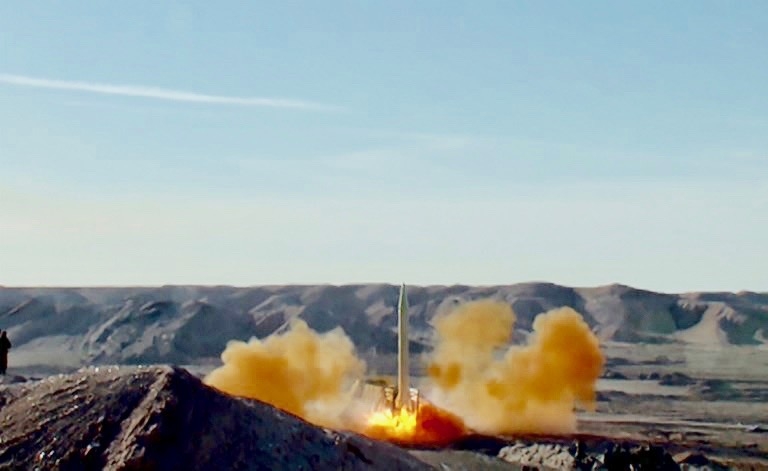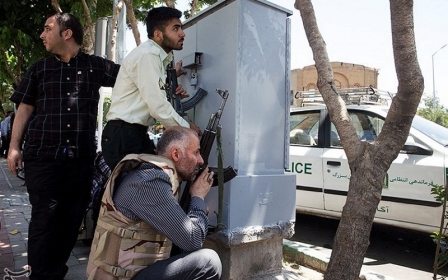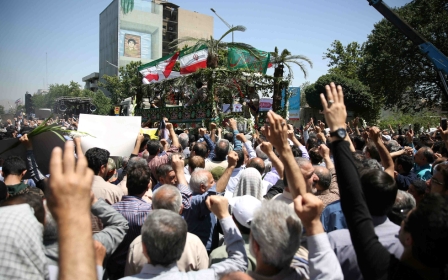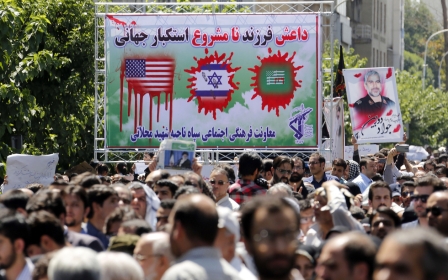Iran fires missiles at IS in Syria to avenge Tehran attacks

Iran's Revolutionary Guard said it launched a series of missiles into Syria on Sunday in revenge for deadly attacks on its capital that were claimed by the Islamic State (IS) group.
The missiles were fired from western Iran across the border into Deir Ezzor province in northeastern Syria, targeting what the Guard called "terror bases".
"Medium-range missiles were fired from the [western] provinces of Kermanshah and Kurdestan, and a large number of terrorists were killed and weapons destroyed," the statement said.
The Islamic Revolutionary Guard Corps (IRGC) said in a statement published on its Sepahnews website that the missiles were "in retaliation" for 7 June attacks on Tehran claimed by IS. The statement could not be independently verified.
It said the attack targeted "a command base.... of the terrorists in Deir Ezzor," Syria's oil-rich eastern province.
"The spilling of any pure blood will not go unanswered," the Revolutionary Guards said in the statement.
On 7 June, gunmen and suicide bombers attacked the parliament complex and the shrine of revolutionary leader Ayatollah Ruhollah Khomeini in Tehran, killing 17 people.
The Islamic State group claimed responsibility.
The IRGC, which accused Saudi Arabia of involvement in the attacks, vowed to avenge the bloodshed.
Senior Iranian officials had also put the blame on Riyadh after the Tehran attacks, saying Saudi Arabia was "promoting terrorist groups" in Iran.
Iran is a key ally of the Syrian government of President Bashar al-Assad, alongside Russia and the Iran-backed Hezbollah movement of Lebanon.
Iran has sent to Syria military advisers as well as thousands of "volunteer" fighters recruited among its own nationals as well as the Shia communities in neighbouring Afghanistan and Pakistan since Syria's conflict broke out in March 2011.
According to a report published in March, about 2,100 combatants sent by Iran have died in Syria and Iraq.
Middle East Eye propose une couverture et une analyse indépendantes et incomparables du Moyen-Orient, de l’Afrique du Nord et d’autres régions du monde. Pour en savoir plus sur la reprise de ce contenu et les frais qui s’appliquent, veuillez remplir ce formulaire [en anglais]. Pour en savoir plus sur MEE, cliquez ici [en anglais].




